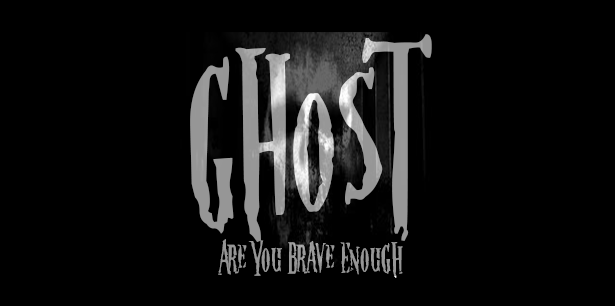The History Behind Local Hauntings
- Gary Taylor-Green
- May 26, 2025
- 4 min read
Across the globe, stories of local hauntings have captivated our imaginations for centuries. From the charming ethereal entities of small towns to chilling tales that send a shiver down our spine, the history of hauntings is rich and varied. With each ghost story often tied to real historical events, understanding these tales requires delving into the past.
Local Hauntings: A Glimpse into the Unknown
Local hauntings are not just mere folklore; they often stem from significant historical happenings. These locations, whether they be old homes, institutions, or public spaces, can be touched by tragedy, thereby creating a haunting narrative. For example, the notorious Whaley House in San Diego is often called the most haunted house in America. Built on the site of a former gallows, the property has a history of sorrow and death which adds layers to its ghostly reputation.
The Whaley family, who lived there in the 19th century, experienced numerous tragedies, including the deaths of family members within the house. This backstory has given rise to numerous ghost sighting reports. Visitors claim to see apparitions of family members and hear unexplained laughter.

Each location has its own unique story, shaped by the events that occurred. Ghost stories often serve as cautionary tales or reminders of traditions. For instance, older properties that were once bustling with life can create an unsettling atmosphere when they stand empty, amplifying the ghostly associations people have with them.
Seeking the Shadows: Why Do We Hunt for Ghosts?
People are drawn to ghost hunting for a multitude of reasons. Some seek adventure, whereas others desire closure or understanding of familial issues. This pursuit can be directly linked to cultural beliefs and social constructs. Ghost hunting can act as a form of therapy, allowing individuals to confront personal grief or unresolved issues.
Demonstrating curiosity about the past can lead people to explore local hauntings through guided tours, like those offered in a variety of towns. For instance, on ghost hunts in Kent, participants may investigate reputedly haunted sites using equipment like spirit boxes and infrared cameras.
This sort of exploration fosters a sense of community as, often, ghost hunts bring together those who share an interest in the paranormal. According to recent surveys, nearly 50% of individuals aged 18-30 reported a belief in the paranormal, which indicates a significant cultural shift towards embracing these eerie tales.

How Old Do You Have to Be to Go on a Ghost Hunt?
If you’re considering diving into the ghost hunting world, age and responsibility can come into play. Many ghost hunting tours have specific age requirements. Typically, participants must be at least 16 years old, and those under 18 frequently need parental consent. This ensures that participants are sufficiently mature to handle potentially frightening encounters.
Different ghost hunting collectives establish their own age rules. Younger participants often find opportunities to engage in activities specifically designed for them. For instance, child-friendly ghost tours might avoid particularly scary elements while still allowing them to experience ghost stories suitable for their age. Always check with the organization beforehand to ensure an appropriate experience.
The Role of History in Hauntings
Every haunting has a backstory steeped in history. Many ghost stories derive from tragic or noteworthy events. For example, the Tower of London, with its history of executions and imprisonment, is filled with tales of restless spirits seeking justice or companionship. With a recorded history stretching back more than a thousand years, the ghosts here appear to be tied to the building’s violent past.
Interestingly, studies show that locations with deep historical significance tend to attract more ghostly encounters. The emotional weight of history can create an environment where spirits linger. Both skeptics and believers can't resist the allure of attempting to piece together the narrative behind the sightings.

If you're interested in chasing down these stories, many historical societies offer walking tours that highlight haunted locales and their histories. These tours not only present ghost stories but also provide cultural and historical context that may explain why these hauntings exist.
Modern Ghost Hunting Techniques
As interest in the paranormal has surged, so have the methods used to investigate local hauntings. Today, ghost hunters utilize a variety of technological advancements, including infrared cameras, EVP meters, and even drones. The purpose of these tools is to capture evidence of paranormal activity in ways that are both exciting and scientifically grounded.
Many ghost hunting groups promote a blend of scientific inquiry and folklore. The ghost hunting community often debates the credibility of various methods, leading to lively discussions among enthusiasts and skeptics alike.
These modern techniques enable enthusiasts to connect with the past in real-time, often reporting phenomena such as unexplained noises or temperature drops. This evidence can be shared with a larger audience, amplifying interest and fostering community involvement in local cultural heritage.
The Thrill of the Unknown
Ultimately, the mystery of local hauntings will continue to capture our fascination. While some may dismiss ghost stories as mere myth, the cultural implications of these narratives are undeniable. They invite exploration, reflection, and connection with history.
What's more, these spirits often symbolize lessons learned or unaddressed feelings. Whether one believes in the supernatural or simply enjoys the thrill of discovery, local hauntings provide a captivating way to engage with the past.
So, consider embarking on a ghost hunting adventure. If you're in Kent, sign up for one of the thrilling ghost hunts in Kent to explore the local history behind its supernatural lore. You might just find more than you bargained for.





Comments